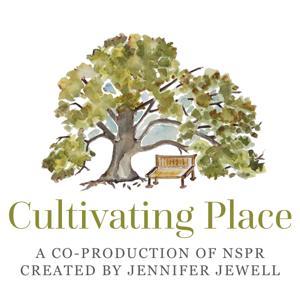Welcome to Season 5 of No-Till Flowers! It's good to be back!! We're starting off with a fairly personal episode as I share what's changed for me and my health in 2024.
This past season was my 17th season farming and selling flowers. There has been a lot of wear and tear on my body, mind and spirit along the way. I would wager heavily that no small business owner understands what they are signing up for at the beginning. Or even many years into it. The first 10 or so years are just holding on for dear life. The highs and lows of this rollercoaster ride lurch your emotions and mind all over the place. For too long, we define success as making a sale and making a customer happy. In most cases, we outright forfeit our own well-being. At least that certainly was the case for me.
When our bodies are under chronic elevated stress and we're not eating well (which pretty much describes every farmer), our internal ecosystem starts to break down. Our bodies host trillions of microbes that that make us surprisingly similar to soil biomes. In this episode, we learn about how to better support our personal gut biomes so we can better support our farms and larger communities.
My guest today is Susan Brown, a functional medicine practitioner I've worked with over the past year to improve my own biome. If you'd like to work directly with Susan, her website is https://www.nourishwithsusanbrown.com/
Find a functional medicine practitioner near you with this site: https://www.ifm.org/find-a-practitioner
If you'd like to learn more about supporting your gut biome and supporting your body as a whole, here are a few links to podcasts that can help you learn more:
Dr. Zach Bush interview on Feel Better, Live More Podcast
Dr. William Li interview on Feel Better, Live More Podcast
How to Control Blood Sugar on Feel Better, Live More Podcast
The Dr. Hyman Show
Susan mentioned a supplement, Ion Biome, made from ancient soil. Here's the link to that. Please note that I have not tried this supplement personally so can not speak to its effectiveness.
Other Supplements she mentioned were:
- Cytozyme-AD for adrenal support
- Magnesium glycinate
- LMNT for electrolytes and magnesium
- Vitamin D3 K2 (remember to eat some fat at the same time you're taking this one – like an avocado)
Here's a recipe for a quick and healthy meal you can take into the field with you:
CHOCOLATE CHIA PUDDING
- 1 can of unsweetened full fat coconut milk (Try Native Forest brand)
- 1 scoop chocolate protein powder (Try SunWarrior brand if you don't have a favorite already)
- 6 Tbsp chia seeds
- 1 tsp vanilla extract
- 1 pinch of sea salt
- dash of cinnamon (optional)
Mix everything together. Use an immersion/stick blender to get it all really combined for a smooth creamy pudding. Divide out into glass jars or other containers you can grab on the go. Keep cold. Can be stored in the fridge for 3-4 days. When you're ready to eat, top with fresh berries and/or shredded coconut.
Why is this recipe so good for you?
Coconut milk is a superfood that heals and supports for your gut microbiology. And all the good fat in it balances your blood sugar levels so your energy is stable throughout the day (no more sugar crashes!). Chia seeds, also a superfood, have tons of fiber and omega-3. The protein powder helps your muscles recover from fatigue faster. The sea salt adds some micronutrients and electrolytes. And the fresh berries on top add more fiber and antioxidants. Plus it's just dang yummy!
Would you like more recipes and a chance to connect with others who have experiences similar to yours? Join the Regenerative Flower Farmers Network (RFFN) for just $20/year if you'd like to continue the conversation on topics covered in this episode.
On-demand Short Courses for Farmers Available on RFFN:
- Foliage for the Win
- Successful Flower CSAs and Subscriptions
- CREW: Hiring and Managing
- Simple Steps to Better Marketing
Tap into the above courses and resources any time you need. These are available on-demand through the Regenerative Flower Farmers Network.
>>> FOR THE MONTH OF JANUARY, GET 3 SHORT COURSES FOR $300.
Past episodes that discuss soil health and biomes for further listening include:
Episdoe 29: Nutrient Balancing in Living Soils with Bryan Mason
Episode 34: Why I Love to Spray at My Farm: Boosting the Phyllosphere
Episode 17: Natural Inputs with Nigel Palmer
Episode 15: Korean Natural Farming and JADAM in Flower Farming with Tony Gaetz of Bare Mountain Farm
HAVE IDEAS AND FEEDBACK ABOUT THE PODCAST? Share your opinions in this brief survey.
As always, if you appreciate this podcast and all the education it provides, please take a moment out of your day to rate and write a review for it on Apple Podcasts or wherever you are listening to it.




































